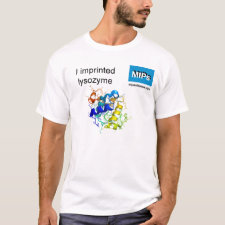
Authors: Qian LW, Liu WQ, Yang MX, Nica V, Yang JF, Liu HB, Ning LL, Zhang SF, Zhang QY
Article Title: Zwitterionic polymer chain-assisted lysozyme imprinted core-shell carbon microspheres with enhanced recognition and selectivity.
Publication date: 2020
Journal: Talanta
Volume: 217
Article Number: 121085.
DOI: 10.1016/j.talanta.2020.121085
Alternative URL: https://www.sciencedirect.com/science/article/pii/S0039914020303763
Abstract: Constructing imprinting materials with high recognition and selectivity for protein is an always challenge in protein imprinting technology (PIT). In this work, upon the participating of a zwitterionic polymer chain (Poly (1-vinyl-3-sulfopropylimidazolium), PVSP), a lysozyme imprinted core-shell carbon microsphere (CFC-PVSP@MIPs) was prepared by combining template immobilization method and surface imprinting technology. The carboxyl-functionalized carbon microspheres as substrate provided the CFC-PVSP@MIPs satisfactory adsorption capacity (68.1 mg g-1), while the dopamine as a functional monomer and crosslinker allowed the imprinted microspheres to have a thin imprinted shell, thus endowing them a fast adsorption equilibrium rate (120 min). In addition, PVSP could be tightly bound to the imprinted layer through non-covalent interaction, which not only simplified the preparation process of CFC-PVSP@MIPs, but also reduced the non-specific adsorption of imprinted material on proteins. Therefore, the resulting CFC-PVSP@MIPs exhibited a more superior recognition ability towards lysozyme with imprinting factor value of 3.10, compared with the PVSP-free imprinted microsphere (imprinting factor value 1.93). Furthermore, benefiting from the characteristics of zwitterionic groups, CFC-PVSP@MIPs also revealed stronger selectivity in competitive adsorption studies of binary protein mixture samples. Consequently, the proposed strategy would be a promising and convenient way to obtain protein imprinted material with high recognition ability, thus would be conducive to further development and application of PIT
Template and target information: protein, lysozyme
Author keywords: protein imprinting, Zwitterionic polymer, Template immobilization, Surface imprinting technology, Carboxyl-functionalized carbon spheres



Join the Society for Molecular Imprinting

New items RSS feed
Sign-up for e-mail updates:
Choose between receiving an occasional newsletter or more frequent e-mail alerts.
Click here to go to the sign-up page.
Is your name elemental or peptidic? Enter your name and find out by clicking either of the buttons below!
Other products you may like:
 MIPdatabase
MIPdatabase









